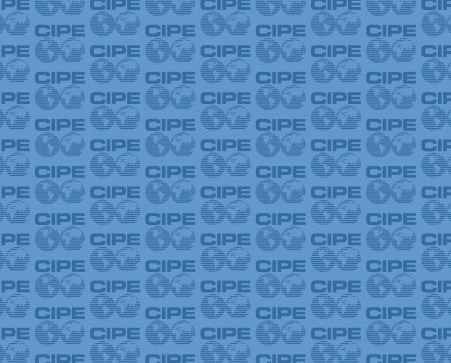
Democracy can be messy, and Kuwait has been called a “mess.” Tunisia, Egypt, and Libya have recently shown how hard it is to build new democracies on the rubble of authoritarian systems. But unlike citizens of those countries, when Kuwaitis go to the polls on February 2, they will have a history of real (if flawed) democracy to guide them.
The protest movement known in the region as the Arab Spring is global in scope, occurring not only in Tunis and Cairo, but in Moscow, London, New York, and elsewhere thanks to the interconnected modern world. Both the people and the government of Kuwait have seen how powerful this movement can be. Depending on how long it continues and how widely it spreads, 2011 could turn out to be one of those years, like 1968 or 1848, which stands for either the birth of a new order or its violent suppression.
In many Arab countries, this struggle for democracy is leading to a crisis of national identity. Unlike many of its Arab neighbors, however, Kuwait is not a young nation. Tunisia, for example, gained its independence from France in 1956, the same year that Gamal Abdel Nasser took power in Egypt. Saudi Arabia was founded by Abdul-Aziz bin Saud in 1932. Iraq has had its current form of government for just half a decade.
In Kuwait, by contrast, the Al-Sabah family has occupied the throne since 1756 – when King George II was sovereign of the thirteen American colonies and a twenty-four year old George Washington had just been promoted to colonel. Nor is the Kuwaiti parliament a recent innovation. The first legislative council of Kuwait, a precursor to the current National Assembly, was formed in 1921, which makes it one of the oldest in the Arab world and the oldest in the Gulf region.
And Kuwait’s parliament is not as toothless as many in the region. Both The Economist and Freedom House put Kuwait close to the top of their regional rankings. Women have had the right to vote since 2005 and Kuwaiti elections are considered to be reasonably free and fair, particularly by comparison with some practices in the “neighborhood.” All of these factors incline one toward optimism when discussing Kuwait’s future.
It has been pointed out that, generally speaking, countries with oil tend to be less free than countries which have no or little oil. It has also been pointed out that the Arab Spring has largely skipped the Gulf region. Both of these assertions are true as far as they go. However, Kuwait, Bahrain and Iraq, all of which have oil, are freer (or less unfree) than Yemen and Syria, which don’t. And the Arab Spring has indeed come to the Gulf, striking Yemen and Bahrain with a vengeance.
Kuwait is not generally thought of as one of those countries undergoing a “Spring.” That is not entirely true: on March 8, 2011 a rare street protest took place in the Kuwaiti capital. And on November 16, 2011, protesters, including lawmakers, burst into the Kuwaiti parliament. There is also a vigorous youth movement, and has been for some time.
On February 2 Kuwaitis will vote for the fourth parliament in six years. Several members of parliament are under investigation for corruption. The Interior Ministry banned several candidates from running for office, and a court later overturned the ban.
Each of these facts, taken in isolation, is troubling. Four parliaments in six years do not imply a stable democracy. Bribery is despicable, and a slow rot to the system. And in what kind of democracy can the executive decide who gets to run for the legislature? A genuine separation of powers would normally rule out such meddling.
But taking a step back, Kuwait, it seems, is a country with meaningful political debate. Four parliaments are better than no parliament. While corruption does occur in Kuwait, the political system is increasingly taking bribery accusations seriously. And as far as banning candidates from running for office, a court overturned the ban. That is to say, in this case the judicial branch was able to balance the executive branch, which is how a democracy is supposed to work – with checks and balances.
The election will go forward on February 2. It is being vigorously contested by a wide variety of candidates. Indications are that it will be as free and fair as one can expect in the region. The results will no doubt be accepted and a new parliament will be formed. Democracy is messy. And Kuwait has it.
Published Date: January 27, 2012